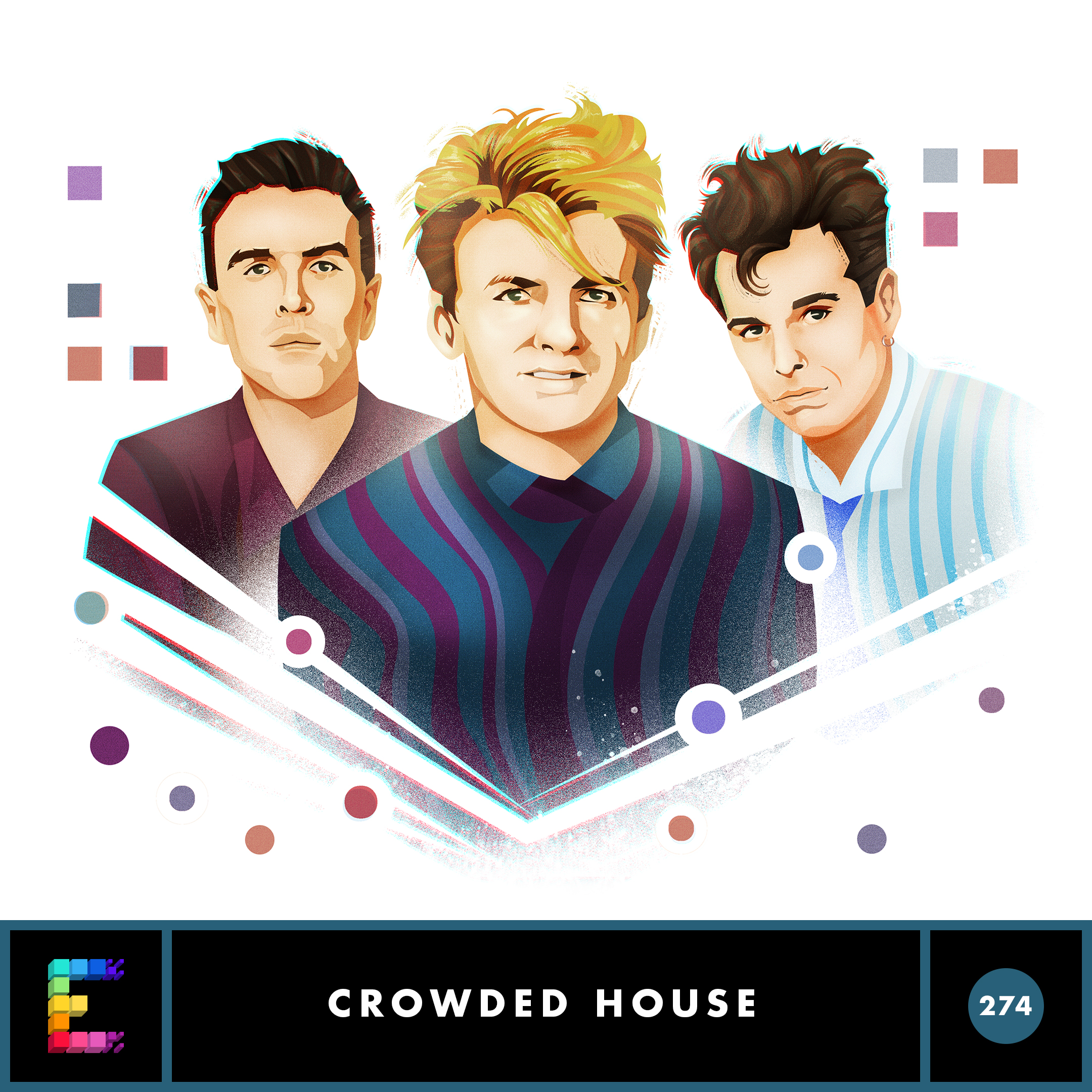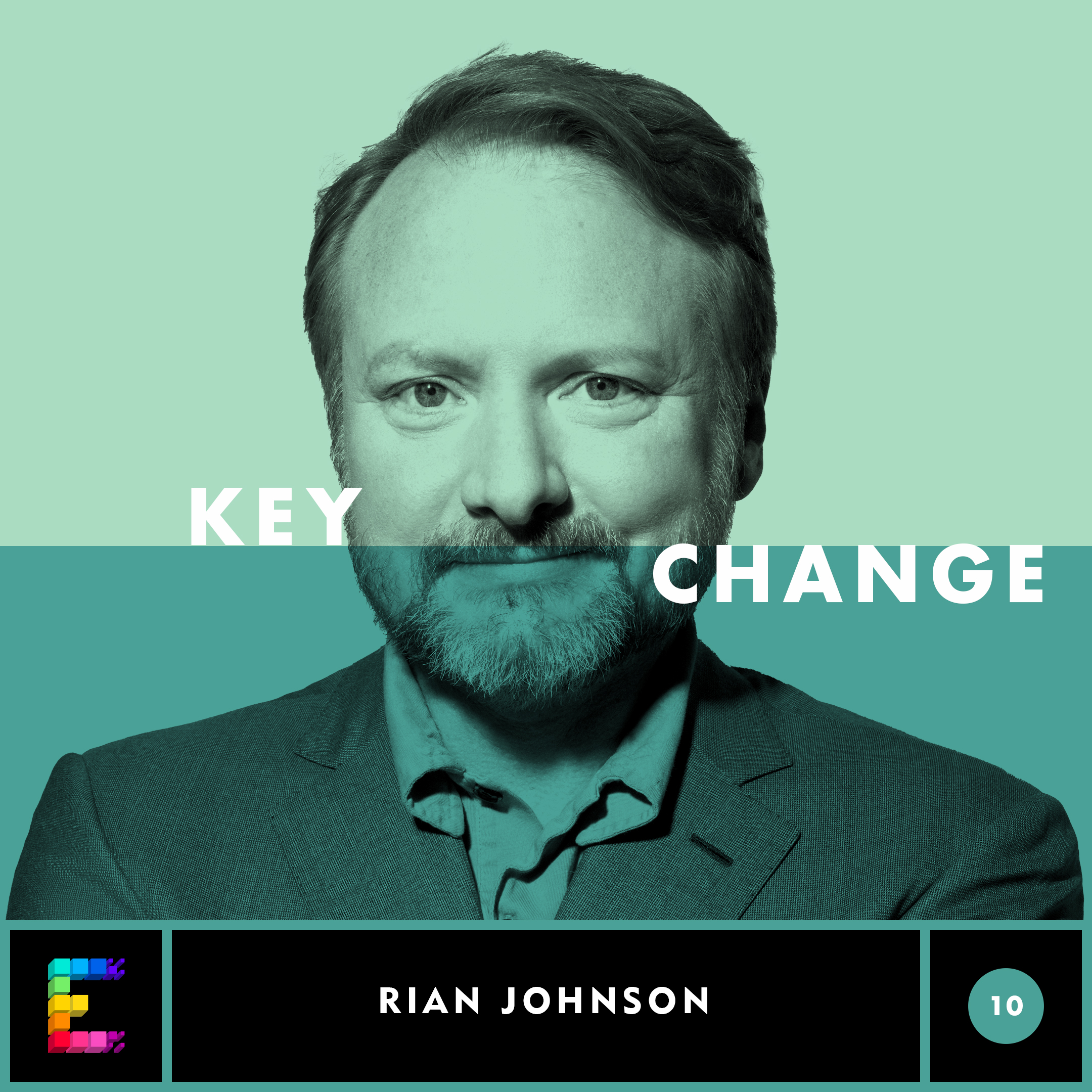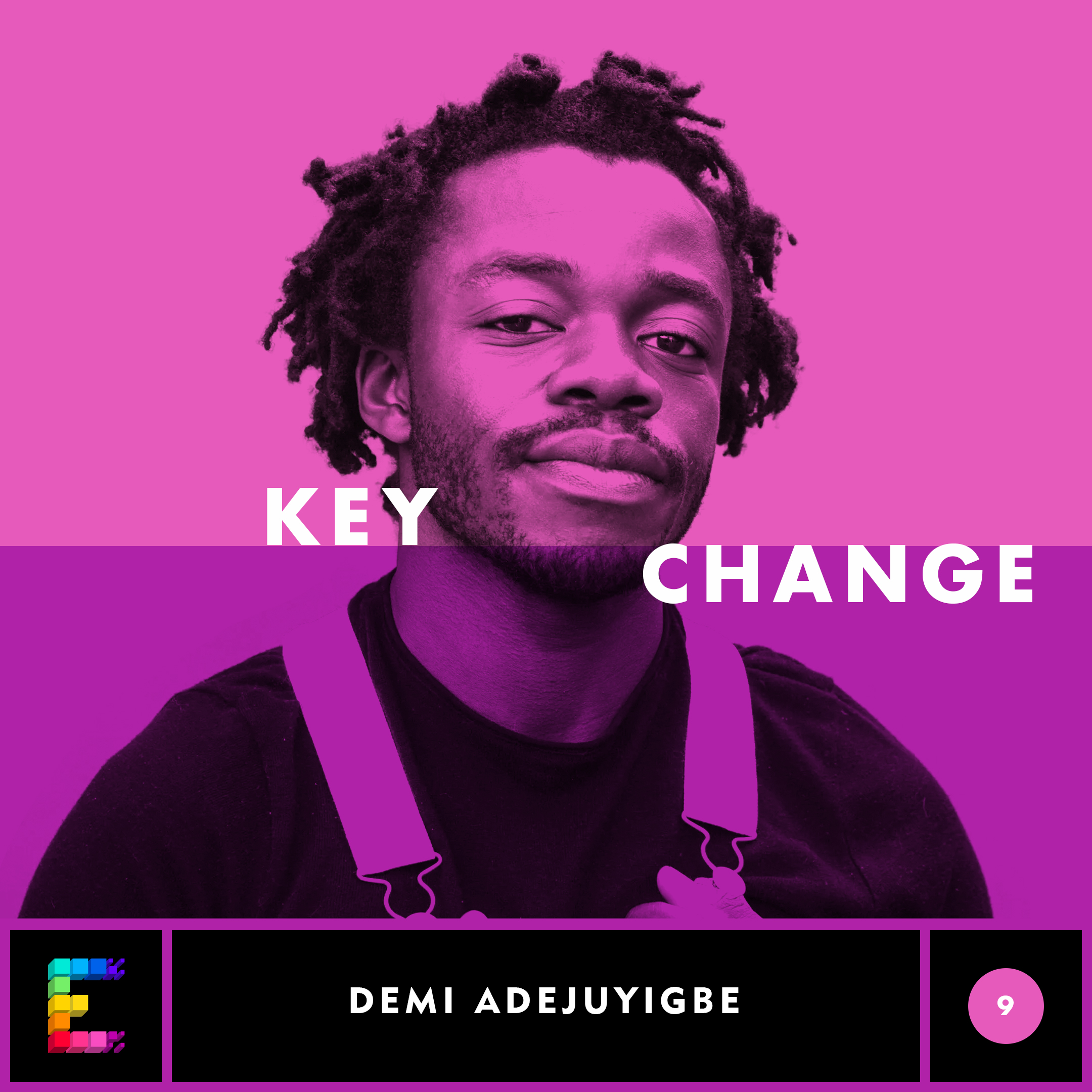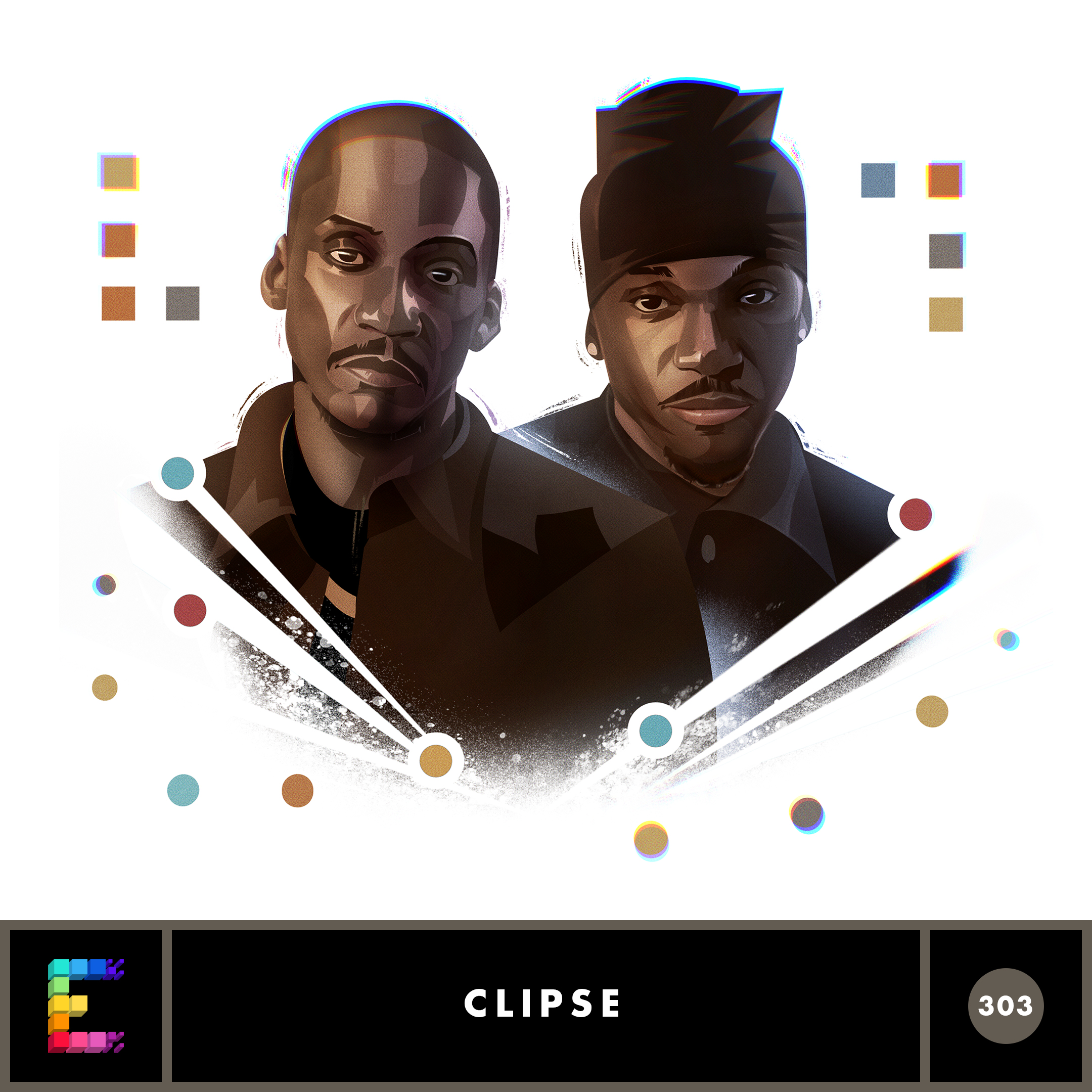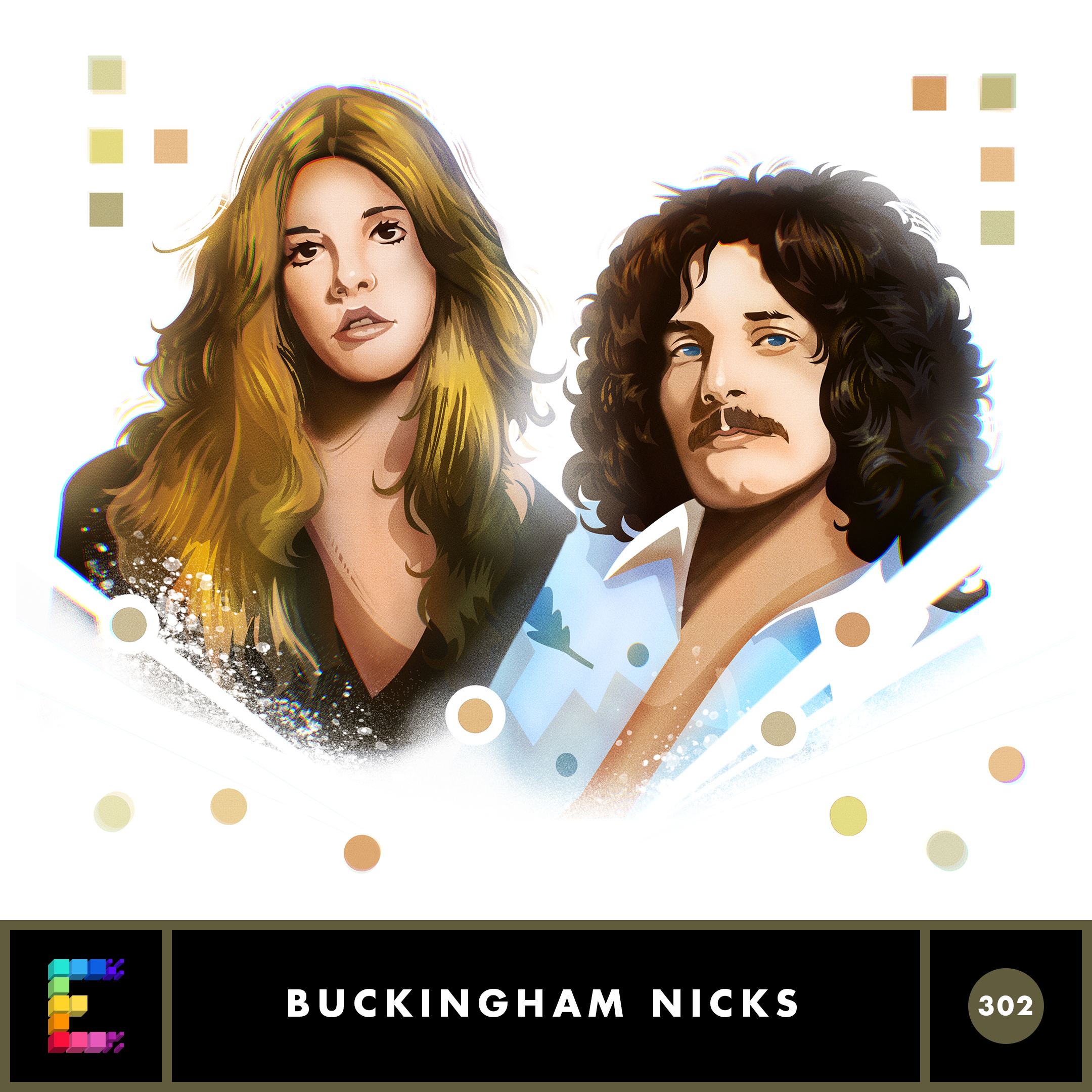Crowded House - Don't Dream It's Over
Crowded House formed in 1985 in Melbourne, Australia. They’ve released eight albums, including their most recent one, Gravity Stairs, which came out last month. But on their very first album, they had a big hit with "Don’t Dream It’s Over."
Crowded House made “Don’t Dream It’s Over” with Grammy-nominated producer Mitchell Froom, who they went on to work with multiple times. For this episode, I talked to frontman Neil Finn about how the song was first written, and how it developed with his bandmates and collaborators in the studio. And we talked about the profound connection people have had with the song over the years.
For more, visit songexploder.net/crowded-house.
Press play and read along
Transcript
Speaker 1 You're listening to Song Exploder, where musicians take apart their songs and piece by piece tell the story of how they were made. I'm Rishikesh, Hirway.
Speaker 2
This show is supported by Odo. When you buy business software from lots of vendors, the costs add up and it gets complicated and confusing.
Odoo solves this.
Speaker 2 It's a single company that sells a suite of enterprise apps that handles everything from accounting to inventory to sales. Odo is all connected on a single platform in a simple and affordable way.
Speaker 2
You can save money without missing out on the features you need. Check out Odu at odoo.com.
That's odoo.com.
Speaker 1
This episode is brought to you by the new film Splitsville. It's a comedy about relationships and the messiness that comes with them.
And it stars Dakota Johnson and Adria Arhona.
Speaker 1
It premiered at Cannes, where it got rave reviews, and it's distributed by Neon. And for me, that's huge.
Because I trust Neon the way that I trust my favorite record labels.
Speaker 1 I will definitely check out anything that they put their name on. So I'm looking forward to seeing this.
Speaker 1 Splitsville is already playing now in select theaters, and it'll be playing everywhere on September 5th.
Speaker 1 Crowded House formed in 1985 in Melbourne, Australia. They've released eight albums, including their most recent one, Gravity Stairs, which came out last month.
Speaker 1 But on their very first album, they had a big hit with Don't Dream It's Over.
Speaker 1 When I was a kid, my older sister had a mixtape of her favorite songs that she'd made by taping them off the radio, and we used to listen to that one tape over and over again.
Speaker 1 Don't Dream It's Over was a big fixture on it. She and I used to try and imitate Neil Finn's accent when we would sing along.
Speaker 1 Crowded House made Don't Dream It's Over with Grammy-nominated producer Mitchell Froom, who they went on to work with multiple times.
Speaker 1 For this episode, I talked to frontman Neil Finn about how the song was first written and then how it developed with his bandmates and collaborators in the studio.
Speaker 1 And we talked about the profound connection that people have had with the song over the years.
Speaker 4 My name is Neil Finn and I am the lead singer of the band Crowded House.
Speaker 4 My brother, Tim, started an amazing band when I was about 14 called Split Ends.
Speaker 4 My brother was nearly six years older than me, so I was watching what he was doing at university and, you know, just absolutely transfixed by it and I wanted to be part of it.
Speaker 4
And then Phil Judd, the other songwriting partner, left the band. I didn't expect to be asked to join Split Ends as young as I was.
I was, you know, 18 years old.
Speaker 4
But Tim rang my mother to make sure it was okay if he asked me to join the band, son-to-mother courtesy. And she said, yep.
Then Tim rang me and, yeah, I got the shock of my life.
Speaker 4 The band Split Ends continued for seven years after I joined. Towards the end, Tim announced to us that he wanted to go off and have his own experience of music and of life.
Speaker 4 Then I was faced with the choice of, well, do I keep going in this band and as a lead singer? But it just seemed too intimidating and I wanted to strike out.
Speaker 4
Paul Hester was Split N's last drummer. Paul was an incredible drummer.
I loved playing with him. We discussed the possibility of forming a new band.
We had gone all out to find a bass player.
Speaker 4 We found Nick Seymour in that process, who impressed us by dancing around the control room as he played on our new demos.
Speaker 4
And so I went to my brother's house one day. Paul was living in my brother's house in Melbourne.
And he had invited a whole bunch of people over, which I was not into socializing that day.
Speaker 4 So I went and hid in the music room and played my brother's piano.
Speaker 4 Yeah, the song just emerged at that point.
Speaker 4 It's quite a fertile state for me to be melancholy when I'm writing because the songs I like have a melancholy tinge so I suppose I need to be in that state.
Speaker 4 I was contemplating a few things that young, really young men don't think about, you know, your place in the world, what's really valid and what's important.
Speaker 4 I had a young family at the time, I had a young son, and yeah, navigating, getting up in the night with a new band about to start,
Speaker 4 I had the ability to be able to go again, you know, to start something.
Speaker 4 So I was determined to try and do the right thing on all fronts, you know, trying to apply the right level of passion and commitment to my music and trying to be a good human being at the same time.
Speaker 3 It's not always compatible.
Speaker 4 Later that day, I went home and went to my little music room where I had a four-track recorder at that point, little cassette four-track, and made the demo of the song.
Speaker 4 It became a guitar song.
Speaker 4 I had a delay a Roland Space Echo in my room, so I just put everything through it, including the guitar there, obviously.
Speaker 4 And I created a little snare track by tapping a matchbox with my finger.
Speaker 4 Home demos often have some degree of intimacy about them that's almost impossible to recreate in studio because you're sort of discovering a song at the same time as performing it just after you've written it.
Speaker 4
So you've got this sense of extra yearning because you're going, I think this is great. I think this is great.
I'm going to make it sound great. So I don't know.
Speaker 4 There's some real force of will applied to demos that give it unique atmosphere.
Speaker 4
I played it to my wife. She's usually my first audience if I've got something I like.
I'm always greatly reassured by her grooving to it.
Speaker 4 She's a very good dancer and I have a vague memory of her hips starting to move, listening to it. That's her way of telling me that it's a great song.
Speaker 4 I do remember taking it to rehearsal a few days later and we knew it was good, but it really didn't sound good at rehearsal at all.
Speaker 4 We couldn't figure out how to translate the song into a band arrangement. It's hard to translate a matchbox snare drum into a full drum kit
Speaker 4 but the song really emerged in its record form when I got together with Mitchell Froome.
Speaker 4 He was really young in that whole field of production, but I really liked him and he had some good ideas.
Speaker 4 I got together with him very soon after making that demo and he actually did immediately respond to Don't Dream It's Over.
Speaker 4 He was the first person to sort of pick that out and say, wow, that's a really special song, that one.
Speaker 4 He had a little setup in his shed out the back, you know, with a blaster box that he'd record onto.
Speaker 4 Mitchell played a little really subtle pad in the early parts of the song.
Speaker 4 He was, you know, playing a Hammond, and I played guitar with him.
Speaker 4 It was,
Speaker 4 really surprising to me to have these new angles suddenly put in front of me that I would never have come up with.
Speaker 4 One being the hammered organ solo, which I'd never have dreamed of. I'd never even come close to a hammered organ up to that point.
Speaker 4 And I thought, there's something a little more universal about the sound of this track now.
Speaker 4 We recorded at Capitol Studios. We were a young band, but we hadn't really figured out how to be a band yet.
Speaker 4 Mitchell, I don't think, was that sure that the band was capable of doing the things that he thought the band should be able to do.
Speaker 4 And in that early period, I had my doubts as well. You know,
Speaker 4 nobody was that sure going into making the record how this was going to turn out. The day before we recorded Don't Dream It's Over, we had a shuffle on the record called Now We're Getting Somewhere.
Speaker 4 A shuffle is a very difficult thing for a lot of bands to do well. And Mitchell was not at all convinced that the band knew how to do a shuffle properly.
Speaker 4 And so Mitchell brought in Jim Keltner and Jerry Scheff.
Speaker 1
Jim Keltner played drums for Bob Dylan, Neil Young, and Simon and Garfunkel. And Jerry Scheff was in Elvis Presley's band and played bass for the Doors.
These guys are legendary session musicians.
Speaker 4 It ended up a really anxious day because Paul and Nick were feeling quite overlooked, rejected by having other musicians come in.
Speaker 4 But those guys were such an incredible presence in the studio, and Paul and Nick ended up just being overjoyed to be there and see how that went down. And it made a huge difference.
Speaker 4 However, the next morning, I think Paul and Nick, probably a little sad because it was like, well, that was a great day, but we weren't the band for that.
Speaker 4 So Don't Dream It's Over took on a slightly sadder aspect than we had played it at rehearsal.
Speaker 4 I mean, it's a beautiful feel, and there is sadness in there. Those guys were contemplating their future.
Speaker 4 I just heard a whisper of my vocal and the drum track.
Speaker 4
Yeah, that... We were all in the same room.
Paul was just over here to my left. He had the kind of feel where his hi-hat would match my guitar strumming perfectly.
Speaker 4 Yeah, and that isn't the case with many, many drummers.
Speaker 4 Nick's entry to Don't Dream is a very signature thing for him. He'd, I dare say, he could probably get into a restaurant by singing that bass line.
Speaker 4 I'm Nick Seymour, you know, da da da da da da da da da.
Speaker 4 Nick was a wild card. He was sort of adding a little funkier element to the bass than what I was used to.
Speaker 4 He'd always come at a song in a different manner, which was the reason we hired him.
Speaker 4 But sometimes I'd have to sort of, you know, temper his enthusiasm. You know, hey, settle down a bit there now, Nick.
Speaker 5 Now I'm towing my car,
Speaker 5 and there's a hole in the roof. My possessions are causing me suspicion but there's no proof
Speaker 4 I was really happy with that whole verse now I'm towing my car there's a hole in the roof my possessions are causing me suspicion but there's no proof that to me conjured up that feeling of
Speaker 4 you gather possessions around you in your life and they seem really important, but they also can become burdensome and weigh you down and make you distracted from what the real stuff is.
Speaker 4 and you know when they start to break down you feel like the world's falling apart a little bit that's where the real truth is
Speaker 5 in the paper today
Speaker 5 tales of war and of waste but you turn right over to the TV page
Speaker 4 I loved the sound of double tracking electric guitar
Speaker 4 Suddenly you lift it out of the reality of just being one guy on a guitar and it gives it a slightly fantasy kind of sound
Speaker 4 That's Tim Pierce playing the electric guitar flourishes.
Speaker 4 Mitchell brought a friend of his not knowing whether I was capable of playing delicate lead lines.
Speaker 4 That was a beautiful touch.
Speaker 4 I'm happy with the vocal and I'm pushing it quite a bit.
Speaker 3 When the world comes in, they're come,
Speaker 3 they come.
Speaker 4 I'd have to, you know, decide I'm going to hit those notes. You can't be half-hearted about them.
Speaker 4
I would routinely lose my falsetto in those days early in a tour because I'd be pushing my voice so hard. And it made that song very difficult.
I had to give the falsetto to Paul on a few occasions.
Speaker 4 I said, you just got to sing, dream.
Speaker 4 And I'd get both he and Nick to sing it on stage because there was times on stage that I would go, Hey now, hey now, don't it's I lose it completely, wouldn't be able to sing that high note.
Speaker 4 So, yeah, I've created a little monster for myself.
Speaker 4 know that they won't win.
Speaker 4 I was aware it had a double edge to it. It had a slight sadness inherent in it, but it also had a hopeful chorus of continuing on.
Speaker 4 Don't let the negative thoughts, the tyrants, the oppressors, don't let them win.
Speaker 4 But at the time when the record was about to come out, the prevailing wisdom was you have to have an upbeat song for a young band.
Speaker 4 So people weren't considering Don't Dream It's Over as certainly not as a first single. They tried two or three songs before that, none of which really worked in any major kind of way.
Speaker 4 But there was a woman at Capitol called Paulette McCubbin who was a junior promotion staff person, but she absolutely adored the record and she made it her mission to ring all of the stations, you know, in smaller markets and hounded them to play the song.
Speaker 4 And actually, that's where our initial success came through secondary markets and started to perform really well. And some of the big stations then cotton onto it.
Speaker 4 And I remember we flew into LA not long after that, maybe two or three weeks later,
Speaker 4 and in the car from the airport, the radio was on and I heard it on the radio. That made me realise that it was on its way.
Speaker 4
It's had a lot of big moments in its life. Don't dream it's over.
There was a particularly profound moment which is captured on video. The band was breaking up.
Speaker 4 We decided to call it quits and we had an audience of maybe 150,000 people on the steps of the Sydney Opera House. There's just a very intense feeling attached to that performance.
Speaker 4 There's a very poignant shot of Paul shedding tears as we were singing Don't Dream It's Over.
Speaker 4 So, you know, I'll always remember that one.
Speaker 4 And somehow the song has seemed to be resonant and appropriate for people on a number of different occasions.
Speaker 4 Ariana Grande sang it in Manchester when they were mourning the loss of a whole lot of people at one of her concerts and Bono and Edge just performed it in Las Vegas recently as a response to world events and to the loss of Alexei Navalne and it continually surprises me where it turns up and who finds their way into singing it, you know.
Speaker 4 It's a very interesting process, songwriting, because I haven't really figured it out and I can honestly say I don't know what I'm doing most days,
Speaker 4 which is not something I deliberate over.
Speaker 4 I don't think, oh, I've got to write something that's going to mean something in 30 years' time. It's not like that, it's never that deliberate.
Speaker 4 It's a really wonderful thing about having songs become part of people's life story.
Speaker 4 Well, and I'm eternally grateful for that connection.
Speaker 4 I can't fully explain it. You know, I'm really grateful, it's also a great mystery.
Speaker 1 Coming up, you'll hear how all of these ideas and elements came together in the final song.
Speaker 1 I'm pretty active and I eat pretty well, so I've been operating under the idea that I'm basically healthy.
Speaker 1 But thanks to Function Health, whose sponsor song Exploder, I found out that actually a handful of biomarkers around my heart health are below what's considered normal.
Speaker 1 And with my family history and genetics, I really have to watch out for that.
Speaker 1 And I wouldn't have known about this if it weren't for Function, which is a health platform that gives you access and insights into all kinds of information about what's really happening inside your own body.
Speaker 1 They have over a hundred tests that are included in your function health membership, so you can take proactive steps to learn more about specific areas of your own health.
Speaker 1 There's a saying, that which can be measured can be improved. And now that I can measure these biomarkers, I can improve them.
Speaker 1 So learn more and join by using the Song Exploder link at functionhealth.com slash SongExploder. The first thousand people to sign up will get a hundred dollar credit toward their membership.
Speaker 1 That's functionhealth.com slash song exploder. Or use the code songexploder100 when you sign up to own your health.
Speaker 1 This episode of Song Exploder is brought to you by Booking.com. Booking.yeah.
Speaker 1 From vacation rentals to hotels across the U.S., Booking.com has the ideal stay for for anyone, even for those who might seem impossible to please.
Speaker 1 Whether you're booking for yourself, your partner, your dad, your group of friends, whoever it is, you can find exactly what you're booking for at booking.com.
Speaker 1 For me, the most hard-to-please member of my household that I book for is my senior dog, Watson. So for one, when I'm looking for places to stay, I always have to have the pet-friendly box checked.
Speaker 1 Watson is 13 years old. He loves to travel, but he's extremely picky about his thread counts.
Speaker 1 And it's always so nice when the hotels don't just allow pets, but they actually make him feel welcome with like a little dog bed and treats. And yeah, he's a very well-kept gentleman.
Speaker 1
So if I can find his perfect stay, you can find yours. Find exactly what you're booking for.
Booking.com, booking.yeah. Book today on the site or in the app.
Speaker 1 Song Exploder is sponsored by Quince, which is a great place to find clothes for the fall. Here in LA, it's pretty hot during the day, but then it always drops to the low 60s at night, even in August.
Speaker 1 So when I want to dress for the fall, even in the summer, I just wait for the evening.
Speaker 1 And then I put on this sweater that I got from Quince that has a sort of high collar with four buttons going up the neck. It's made from Mongolian cashmere, and I really love it.
Speaker 1
And I know I'm going to be wearing it through the fall here in LA. and when I'm traveling other places.
Quince partners directly with Ethical Factories, and they only sell direct to customers.
Speaker 1 So you get top-tier fabrics and craftsmanship at half the price of similar brands. So, keep it classic and cool this fall with long-lasting staples from Quince.
Speaker 1 Go to quince.com/slash song exploder for free shipping on your order and 365-day returns. That's q-u-in-ce-e dot com/slash song exploder for free shipping and 365-day returns.
Speaker 1 Again, it's quince.com/slash song exploder.
Speaker 1 And now, here's Don't Dream It's Over by Crowded House in its entirety.
Speaker 1 There is freedom within,
Speaker 1 there is freedom without.
Speaker 1 Try to catch the deluge in a purple cup.
Speaker 1 There's a battle ahead,
Speaker 1 many battles are lost. But you'll never see the end of the road while you're traveling with me.
Speaker 1 Hey, now, hey, now,
Speaker 1 don't dream it's over.
Speaker 1 Hey, now,
Speaker 1 hey, now
Speaker 1 when the world comes in,
Speaker 1 let them come,
Speaker 1 let them come.
Speaker 1 To do the war between us,
Speaker 1 you know that they won't win.
Speaker 1 Now I'm towing my car.
Speaker 1 There's a hole in the roof.
Speaker 1 My possession could cause a mess suspicion, but there's no proof.
Speaker 1 In the pipeline today,
Speaker 1 tales of war and the waste.
Speaker 1 You turn right over to the TV page.
Speaker 1 Hey now, hey, now,
Speaker 1 don't dream it's over.
Speaker 1 Hey now,
Speaker 1 hey now
Speaker 1 when the world comes in,
Speaker 1 they come,
Speaker 1 they come
Speaker 1 to build the war between us.
Speaker 1 We know they won't win.
Speaker 1 Now I'm walking again
Speaker 1 to the beat of a drum
Speaker 1 And I'm counting the steps to the door of your heart.
Speaker 1 Only shadows ahead,
Speaker 1 barely glare in the room. Get to know the feeling of liberation and release.
Speaker 1 Hey, now,
Speaker 1 hey, now, don't dream it's over.
Speaker 1 Hey now, hey, now,
Speaker 1 where the world comes in,
Speaker 1 they come, let them come
Speaker 1 to be the war between us.
Speaker 1 No, they won't win.
Speaker 1 But don't let them win.
Speaker 1 And I'll head out.
Speaker 1 And I'll head out.
Speaker 1 To learn more, visit songexploder.net. You'll find links to buy or stream Don't Dream It's Over, and you can watch the music video.
Speaker 1 We also put up links for you to check out Crowded House's new album, Gravity Stairs, which is out now.
Speaker 1 This episode was produced by Craig Ely, Theo Balcombe, Kathleen Smith, Mary Dolan, and myself. The episode artwork is by Carlos Slerma, and I made the show's theme music and logo.
Speaker 1 Song Exploder is a proud member of Radiotopia from PRX, a network of independent, listener-supported, artist-owned podcasts. You can learn more about our shows at radiotopia.fm.
Speaker 1 If you'd like to hear more from me, you can sign up for my newsletter, which you can find on the Song Exploder website.
Speaker 1
You can also follow me and Song Exploder on Instagram. And you can get a Song Exploder t-shirt at songexploder.net/slash shirt.
I'm Rishikesh Hirway. Thanks for listening.
Speaker 3 Radiotopia
Speaker 3 from PRX. R X
